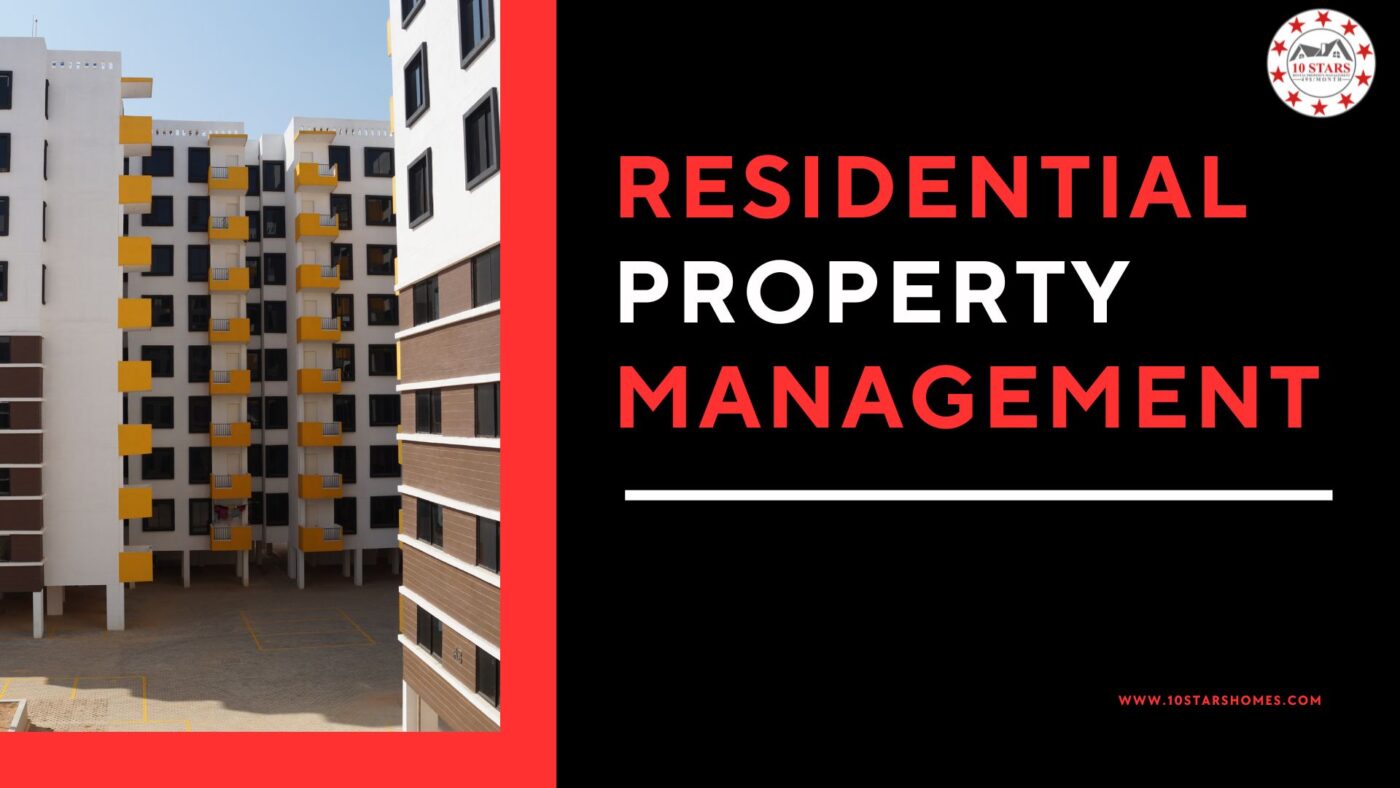Residential property management is crucial to ensuring that properties run smoothly and have the highest possible value in the dynamic world of real estate. Effective property management is essential for property owners and tenants, whether in single-family houses or apartment buildings. This thorough reference explores the relevance, major duties, difficulties, and best practices in the varied field of residential property management.
The Significance of Residential Property Management
Residential property management involves overseeing and maintaining properties on behalf of property owners. This management style offers a myriad of benefits for property owners, tenants, and even communities.
For Property Owners:
- Time and Stress Management: Property owners often have multiple responsibilities and may not have the time to deal with day-to-day property issues. Property managers shoulder these tasks, from finding tenants to handling repairs and emergencies.
- Expertise and Knowledge: Property managers bring in-depth knowledge of local rental markets, ensuring properties are priced competitively to attract tenants while maximizing revenue.
- Reduced Vacancy Rates: Through effective marketing and tenant screening, property managers minimize vacancy periods, ensuring consistent rental income.
- Legal Compliance: Property managers are well-versed in property laws, reducing the risk of legal disputes and ensuring properties are managed in compliance with regulations.
For Tenants:
- Responsive Maintenance: Property managers ensure timely maintenance and repairs, providing tenants with a comfortable living environment.
- Efficient Communication: Property managers act as intermediaries between tenants and owners, facilitating effective communication and conflict resolution.
- Security and Safety: Property managers implement security measures and respond promptly to emergencies, enhancing tenant safety.
For Communities:
- Neighborhood Aesthetics: Well-maintained properties contribute to the overall aesthetics and appeal of a neighborhood, enhancing property values for the community.
- Stability: Effective property management fosters a stable living environment, reducing disturbances and fostering a sense of community.
Key Responsibilities of Residential Property Managers
Residential property managers juggle a wide range of responsibilities, ensuring the proper functioning of properties and the satisfaction of both owners and tenants.
- Tenant Acquisition and Screening: Property managers market vacancies, conduct tenant background checks, and ensure tenants meet necessary criteria.
- Rent Collection: They establish rent payment systems, collect rent, and enforce late payment policies.
- Property Maintenance: Property managers oversee routine maintenance, repairs, and renovations to ensure properties are in optimal condition.
- Lease Management: They draft and enforce leases, handling lease renewals and terminations.
- Tenant Relations: Property managers address tenant concerns, mediate disputes, and maintain a positive tenant-landlord relationship.
- Financial Management: They manage property budgets, track expenses, and provide owners with financial reports.
- Legal Compliance: Property managers ensure properties adhere to local, state, and federal laws, including fair housing regulations.
- Emergency Response: They handle emergencies promptly, ensuring tenant safety and mitigating property damage.
Challenges in Residential Property Management
Property management isn’t without its challenges. Successful property managers navigate these hurdles with skill and finesse:
- Tenant Turnover: Frequent turnover can lead to income gaps and increased expenses related to finding new tenants.
- Maintenance Balancing Act: Balancing routine maintenance and addressing emergency repairs requires careful planning to minimize disruptions.
- Legal Complexity: Evolving property laws and regulations demand continuous education to ensure compliance.
- Tenant Relations: Handling tenant disputes and maintaining tenant satisfaction requires strong communication and conflict resolution skills.
- Market Fluctuations: Changing rental markets can impact property values and rental rates.
- Time Management: Juggling multiple properties and tasks necessitates excellent time management.
Best Practices for Effective Residential Property Management
Navigating the complexities of property management requires a strategic approach. Here are some best practices:
- Clear Communication: Maintain open lines of communication with both property owners and tenants, addressing concerns promptly and professionally.
- Regular Inspections: Conduct routine property inspections to identify maintenance needs and address issues before they escalate.
- Thorough Tenant Screening: Screen potential tenants rigorously to ensure reliable, responsible occupants.
- Transparent Financial Reporting: Provide property owners with transparent financial reports to maintain trust and transparency.
- Emergency Preparedness: Develop and communicate emergency response plans to address unexpected situations swiftly.
- Stay Informed: Keep abreast of local market trends, rental regulations, and property management advancements.
- Embrace Technology: Utilize property management software for streamlined communication, maintenance tracking, and financial management.
Conclusion
Residential property management is a multifaceted discipline that bridges the gap between property owners and tenants, creating a harmonious living environment while optimizing property value. Through effective tenant acquisition, thorough maintenance, transparent communication, and adherence to legal standards, property managers play a crucial role in shaping the success of residential properties. By understanding the significance, responsibilities, challenges, and best practices of property management, property owners can make informed decisions to ensure their investments flourish, tenants enjoy comfortable homes, and communities thrive.

